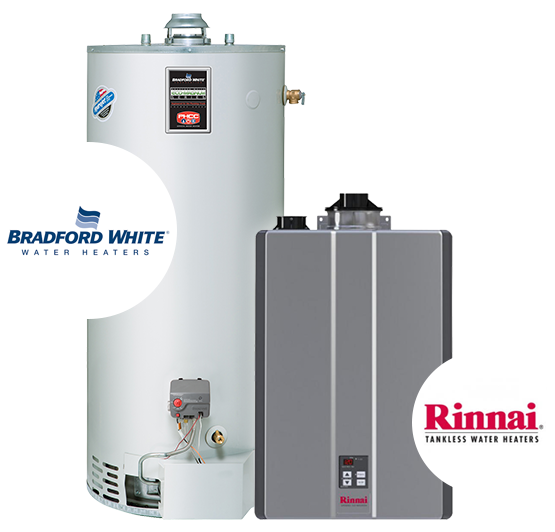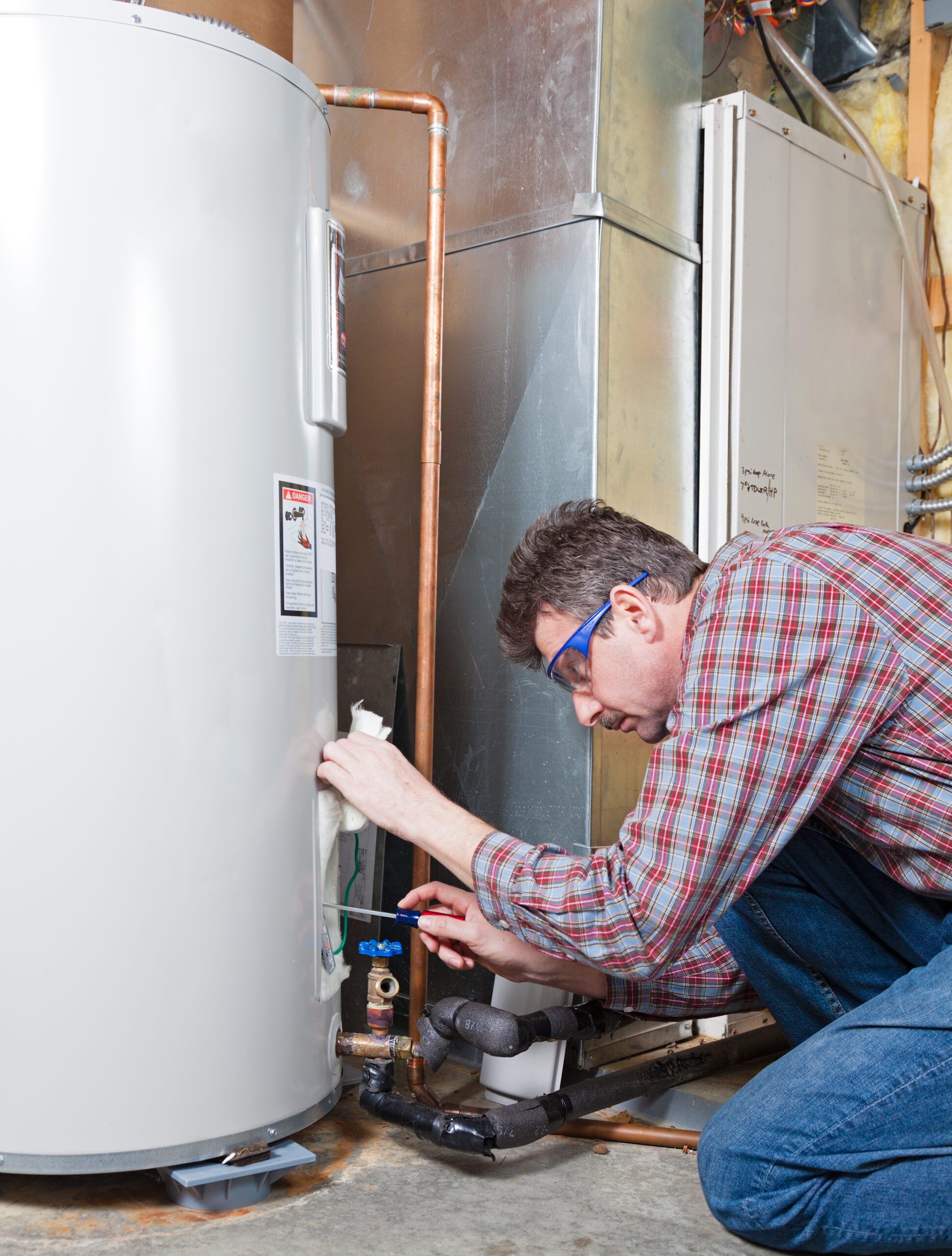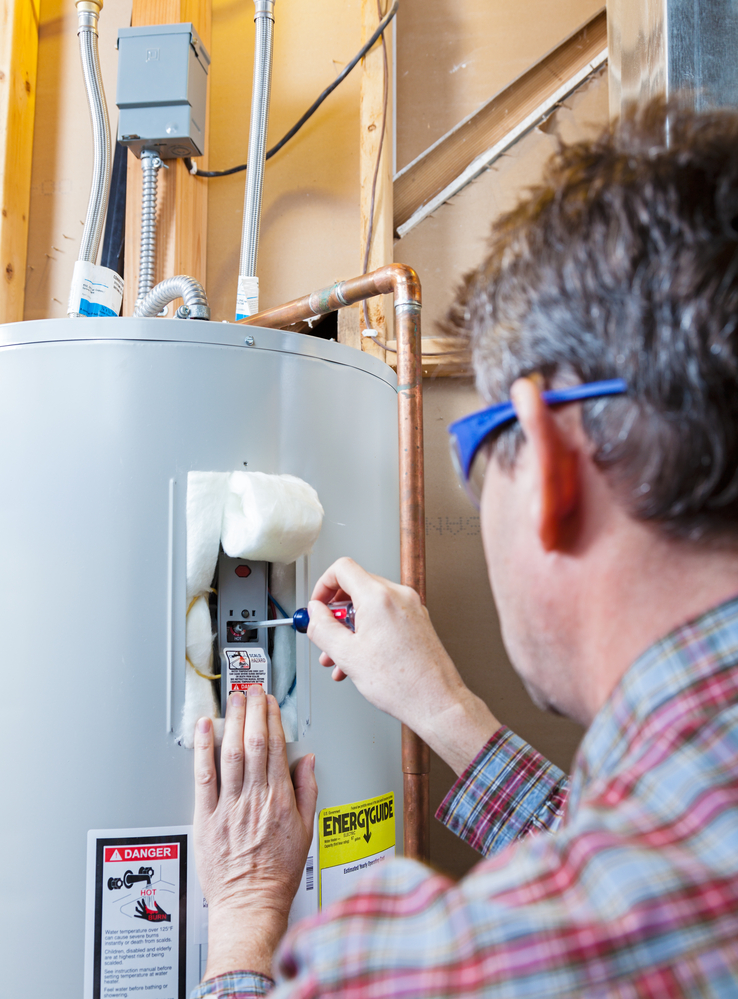Affordable plumbing engineers for water heaters
Gas Water Heaters

The conventional hot water tank is found in most homes, and with just a little maintenance, it can provide years of convenient operation. While tankless or on-demand water heaters that heat water as it is needed are becoming more popular, the tank-type is way more affordable and still preferred by most homeowners. Hot water tanks are available in both gas and electric versions, but the gas models are more common thanks to their lower initial cost and lower operating cost.
As the name implies, a tank-type water heater heats cold water and stores the hot water until it is needed by various appliances in the home. In the case of a water heater, the cold water enters the tank through a cold water supply pipe to force a regular supply of cold water into the tank. The cold water at the base of the tank is heated by a gas burner found below the sealed tank. As the water grows warmer, it emanates in the tank, where it is drawn off by the hot water release pipe to provide hot water wherever it is called for. The hot water release pipe is much shorter than the dip tube, since its target is to funnel off the hottest water, which is located at the very top of the tank.
The gas burner that heats the water is regulated by a gas regulator assembly placed on the side of the water heater, which includes a thermostat that measures the heatwave of the water inside the tank and regulates the burner as needed to maintain the set temperature of the water.
A close look of each component demonstrates the innovative simplicity of the traditional tank-type gas water heater.
More on Gas Water Heaters
A gas water heater uses the heat from burning a fuel (natural gas) to heat water. Gas water heaters are less efficient in energy than electric heaters, but the cost of electricity itself makes the operation costs of an electric heater higher. Gas water heaters also have a very fast recovery rate which makes them a more convenient option for larger families.
In the United States, about 60% homeowners use gas-fired water heaters, and 40% use electric.
A gas water heater can heat a 50-gallon tank in about one hour, and Its recovery rate is much faster than that of an electric water heater. Another advantage of traditional gas water heaters is that they’ll still work even in the absence of power. For families of four or more people, a gas water heater is usually a better choice over electric, as an electric heater is likely to have trouble keeping up with the demands of hot water from a larger family.
Conventional gas water heaters are approximately inefficient because of the heat loss from exhaust gasses and walls of the hot water tank. There is steady hot water, and while this is a good convenience, it means energy is consumed regularly. However, modern units are increasingly effective, and top-of-the-line condensing units are very energy efficient.
The most prevalent type of water heater is the hot water tank, which can store 20-100 gallons of water hot and ready to use at any point in time. This system unit provides a large amount of hot water, but needs recovery time after the tank has been used.
- Tankless heating, which generally uses electric coils, but has of recent become more known for gas-fired units, heats water on demand, thereby providing an endless stream of hot water. These units are more costly than traditional water heaters.
- The high-efficiency alternative for gas heaters is condensing boilers. These units use heat from the exhaust gasses to preheat cold water coming into the tank. This can attain up to 20% increase in efficiency over traditional gas storage units. However, the initial cost of condensing boilers is about twice that of a traditional unit.(condensing boilers are much more expensive).


For consumers, gas is always a cheaper alternative than electricity, and this simple fact has been sufficient for many homeowners to choose gas water heaters. If a gas line is already available in a house, it is a much cheaper alternative. Converting or changing from electric to gas can be quite expensive, because it may require installation of a gas line and venting for exhaust heat. Gas heaters can have a slightly shorter lifespan, though the difference is not momentous. For instance, 12 instead of 13 years.
Our professional water heater technicians have a great experience in the remodeling, repair, installations and maintenance of a complete range of water heating systems, and gas water heaters found in some of the traditional homes of Denver. Denver Water Heaters works really hard and hires only professional water heater technicians who are licensed and insured in the industry to meet your gas water heater repair or installation needs. Our guarantee is simple— You will be 100% happy. Our gas water heater repair and installation department is available 24/7 for your convenience. We are committed to being responsive and professional to all of our customer’s gas water heater needs. We will have an experienced water heater repair technician at your doorstep in no time as soon as you place a call across to one of our friendly customer service staff.
Frequently Asked Questions
How long do gas water heaters usually last?
While the present water heaters are better designed or created than older models, they still need steady maintenance in order to prolong or improve their lives. With regular or steady inspection, draining, and flushing, you can expect a gas water heater to last at least from 8-12 years.
What is the cost of a 40-gallon gas water heater?
A 40-gallon gas water heater costs $330 to $1,500 for the unit alone, or $500 to $2,500 including installation labour.
Which is better: a 40 or 50 gallon water heater?
Typically, 40-gallon heaters last for about eight years, while 50-gallon heaters can last 12 years. This is due to the fact that 50-gallon heaters have thicker tanks. As of such, they are less likely to develop leaks.
Is it cheaper to heat water with gas or electric?
What size water heater do I need for a house with three bathrooms?
